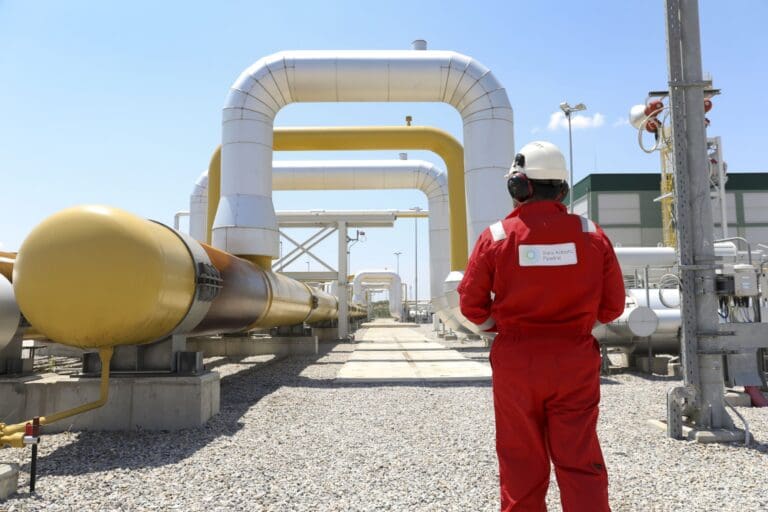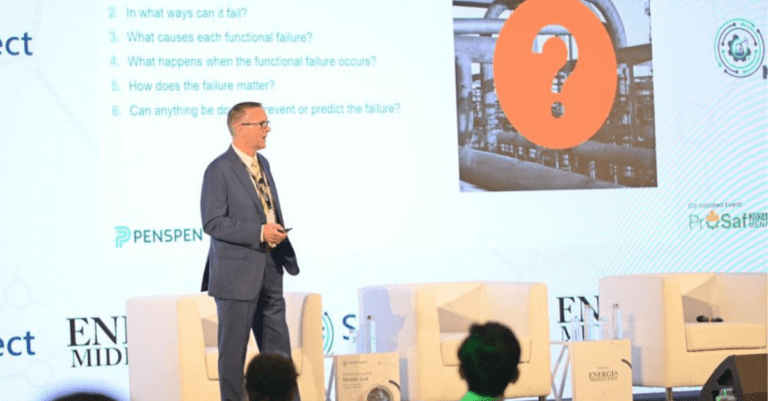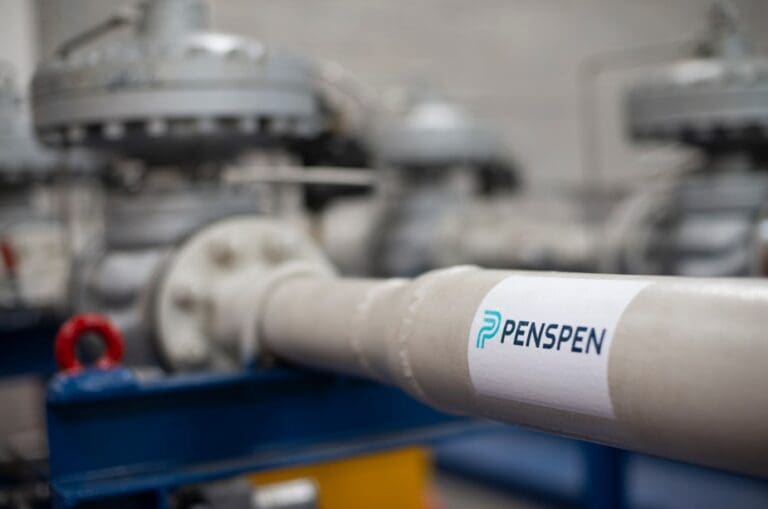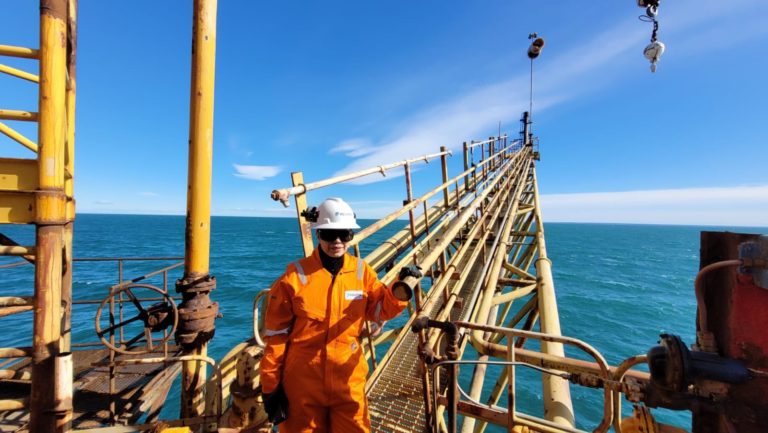As hydrogen adoption accelerates, engineering expertise and proactive integrity management will be key to supporting this ambitious vision and ensuring the opportunities and challenges associated with repurposing existing natural gas pipelines for hydrogen transport are addressed. Repurposing natural gas pipelines for hydrogen requires a comprehensive integrity assessment of the pipeline and the pipeline route. With the European Hydrogen Backbone [i] targeting 52,000 km of hydrogen pipelines by 2040 – 60% of which will be repurposed from existing infrastructure – ensuring the integrity of these pipelines will be critical for a safe and efficient energy transition.
Ben Cowell, Graduate Engineer – Asset Integrity, outlines the key factors to consider from an asset integrity perspective when thinking about repurposing pipelines for hydrogen service.
1. Material Compatibility
Not all pipeline steels are suitable for hydrogen service. Hydrogen can diffuse into the steel, leading to hydrogen embrittlement – a process that reduces ductility and increases susceptibility to crack initiation and growth. Fracture toughness, fatigue resistance and even material strength may all be affected when a pipeline is repurposed to hydrogen. Material assessments, including review of records and laboratory testing, are essential to determine whether the pipeline can safely transport hydrogen.
2. Pipeline Condition
Current condition plays a crucial role in determining suitability for hydrogen transport. Pre-existing defects, internal coatings (when present), and weld quality must all be carefully evaluated. Inline inspections (ILI) and direct assessments should be performed to identify and mitigate potential interactions between existing defects and introduced hydrogen. Welds – particularly those with imperfections or high residual stresses – can act as initiation points for hydrogen-induced cracking.
3. Leakage and Permeation Risks
Hydrogen’s small molecular size increases the risk of permeation through fittings, and seals. Valves and elastomeric gaskets designed for natural gas may leak in hydrogen service. Upgrading seals, and introducing advanced leak detection technologies, will be critical for ensuring continued containment.
4. Risk-Based Integrity Assessment for Hydrogen
Risk assessment methodologies developed for natural gas pipelines must be adapted for hydrogen. As hydrogen’s impact on material degradation, crack growth, and failure modes differs significantly from methane, integrity management plans should incorporate updated probabilistic assessments for hydrogen service. Static and fatigue resistance should be considered, potentially with increased inspection requirements. The different behaviour of a hydrogen release compared to a natural gas release, with respect to ignition, thermal load and over-pressure, will all need to be accounted for. Updated risk models are essential for hydrogen service.
5. Pipeline Capacity and Operating Conditions
Hydrogen has a lower energy density than natural gas, meaning higher flow rates or pressures may be required to match the energy delivered in natural gas service. Pipelines and the infrastructure around the pipeline route, must be assessed for suitability for increased pressures and flow velocities, if these are necessary.
[i] European Hydrogen Backbone (EHB), The European Hydrogen Backbone (EHB) initiative | EHB European Hydrogen Backbone, 2025
Discover More

Our Hydrogen Work
We help countries access lower carbon fuels and extend the useful life of existing energy infrastructure to bring cleaner energy to millions of people in thousands of communities across the world. Take a look at our latest completed hydrogen projects.

Hydrogen Insights
We value and cultivate our technical leadership in order to help our clients. We support each other by sharing our knowledge across the business and industry. Explore the latest hydrogen insights from our people.

Training: H2 Repurposing Course
Penspen is leveraging its extensive energy transition expertise to address an industry-wide skills shortage with the launch of a new training course focused on repurposing pipelines for hydrogen. View the course modules and register your place.

Careers at Penspen
Excellence is at the heart of everything we do and we believe the only way we can achieve this is by working with excellent people who support our values. View our latest global vacancies and help us shape the future of energy.



